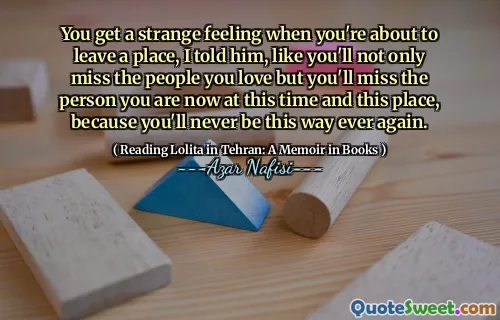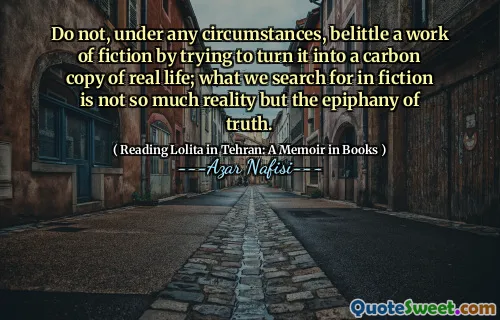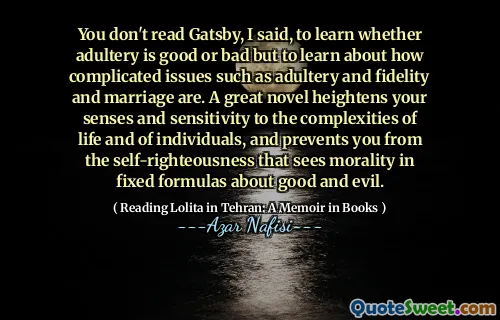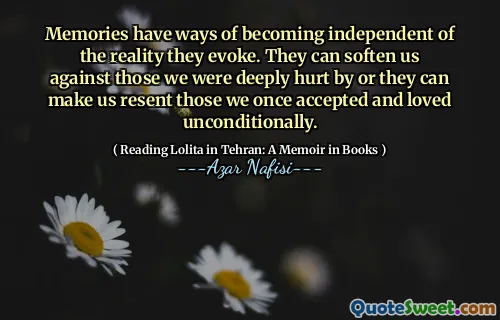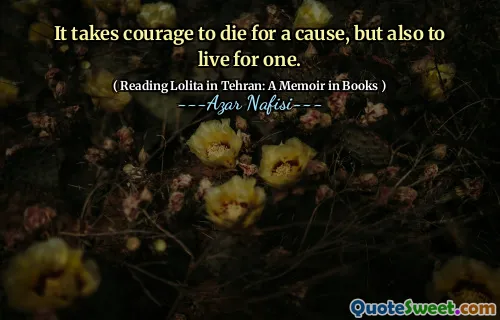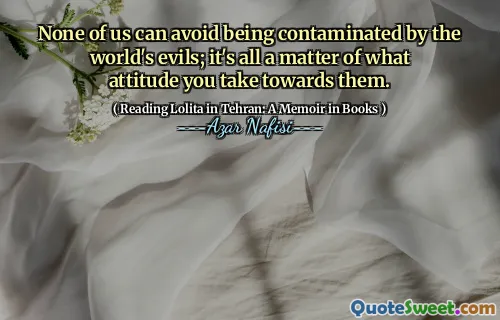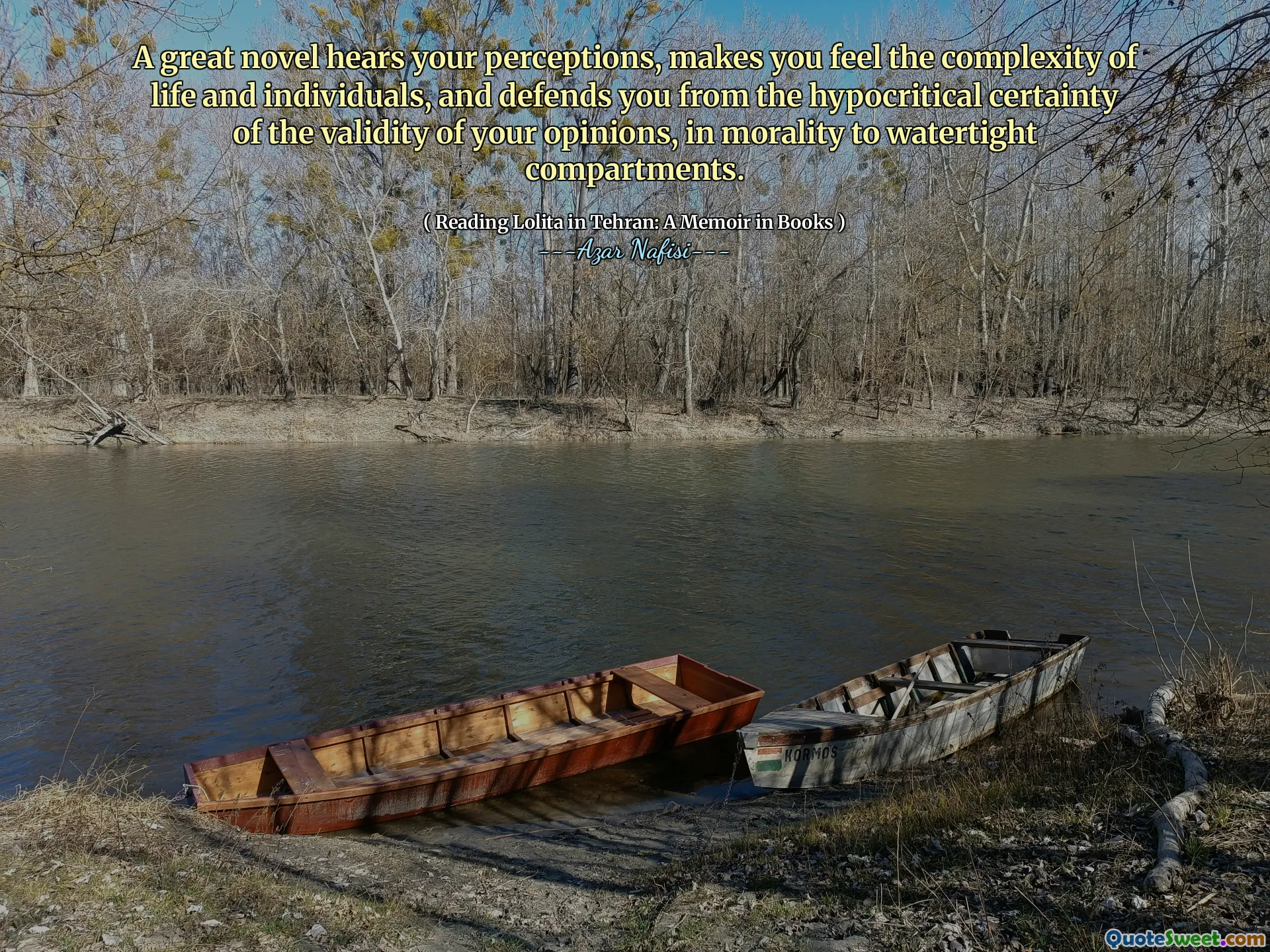
A great novel hears your perceptions, makes you feel the complexity of life and individuals, and defends you from the hypocritical certainty of the validity of your opinions, in morality to watertight compartments.
📖 Azar Nafisi
A great novel serves as a mirror to our perceptions and emotions, enabling us to grasp the intricacies of life and the depth of human character. It compels readers to confront their own beliefs and challenges their rigid viewpoints, particularly in moral contexts where people often seek absolute truths. This engagement with literature cultivates an understanding of the diverse and complex nature of human experiences, beyond black-and-white interpretations.
In Azar Nafisi's "Reading Lolita in Tehran," the author emphasizes the transformative power of literature in navigating the nuanced realities of life. By exploring various narratives, readers are encouraged to question their assumptions and embrace uncertainty, fostering empathy and a broader perspective on morality. This connection between novels and the exploration of personal and societal complexities underscores the significance of literature in contemporary discourse.
